Lecture by Ambassador Extraordinary and Plenipotentiary of France to Ukraine Gael Vessier
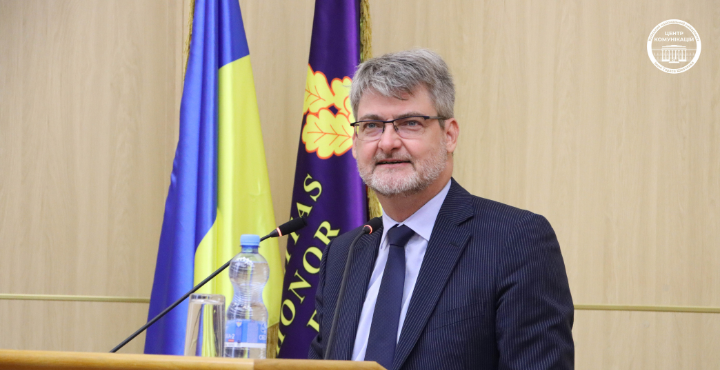
Students of the Educational and Research Institute of International Relations of Taras Shevchenko National University of Kyiv attended a lecture by Ambassador Extraordinary and Plenipotentiary of the French Republic to Ukraine Gael Veseyer on the topic ‘EU: Specifics of Activities’. The conversation predictably led to a discussion on the specifics of European integration processes in Ukraine.
At the beginning of the meeting, Vice-Rector for Academic Affairs (International Cooperation) Kseniia Smyrnova noted that Mr Gael Weseler's lecture opens the KNUDiplomacyTalks season in the new academic year.
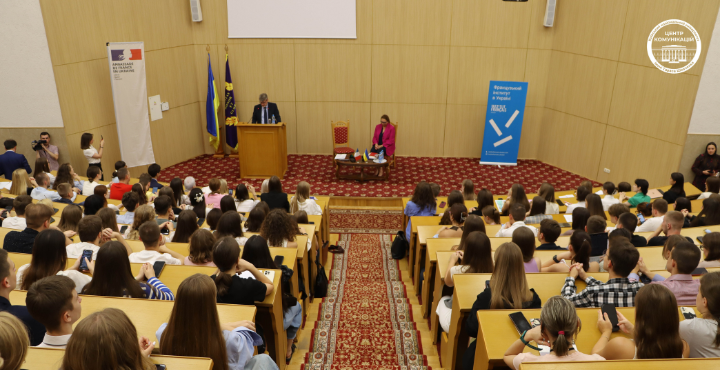
Introducing the distinguished lecturer to the audience, Kseniia Smyrnova noted Gael Veseyer's extensive practical experience in the institutions and bodies of the European Union, as well as in the diplomatic service. Diplomacy is not only about words, but also about the invaluable assistance that Ukraine has been receiving from the official Paris since the beginning of the armed Russian aggression. As an official spokesperson for his country, the Ambassador deserves special respect and gratitude.
In his lecture on the activities of the European Union, the Ambassador assessed the current state and peculiarities of cooperation between Kyiv and Brussels, noting the political and diplomatic solidarity of the united Europe with Ukrainians during the war period. Despite the costs and risks, Europeans are generally open to the idea of Ukraine's accession to the EU, as enlargement is a natural part of the European Union. However, countries seeking accession require perseverance, determination and consistency. For Ukraine, this is an opportunity to implement all the necessary reforms. But we must be prepared for the fact that this will not happen overnight.
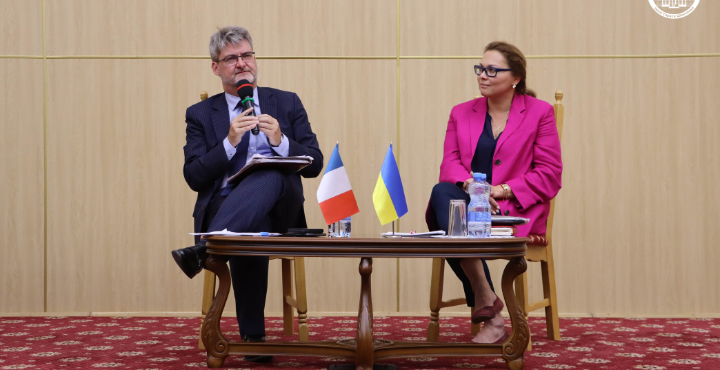
France played a leading role in supporting Ukraine as a candidate for EU membership and was one of the first EU member states to offer its expertise in the European integration process. Gael Veyer assured that the exchange of experience would not only strengthen Ukraine's path to membership, but also deepen relations between the two countries.
The lecture was followed by a lively and lengthy discussion. It is noteworthy that the discussion was marked by language diversity. Students asked questions in both English and French. This indicates that young Ukrainians easily overcome the path of personal European integration, feel that they belong to the European world, fully associating themselves with its culture and values.
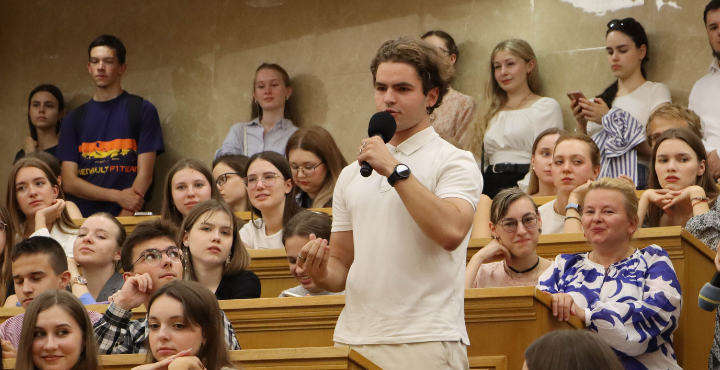
Artem Rybalchenko, a 2nd year student of the School of International Relations, was motivated to learn French by an upcoming study trip, the programme of which includes a visit to the Council of Europe in Strasbourg. His question in French was a form of gratitude to the Ambassador personally and, in his person, to the whole of France for its policy towards Ukraine and the Ukrainian people. Instead, Artem will need Gael Veseyer's judgement in his research work:
‘For a long time, I have been participating in a team research on the European integration of post-socialist countries in Eastern and Southern Europe in order to predict the challenges for Ukraine on this path. So I asked the Ambassador's opinion on the most serious challenge Ukraine will face in the process of European integration. In my research, I mainly focus on economic aspects. But Mr Veseyer very accurately emphasised the social aspect, the importance of preparing society for many reforms and changes. I think this remark will complement the economic framework of my research.’
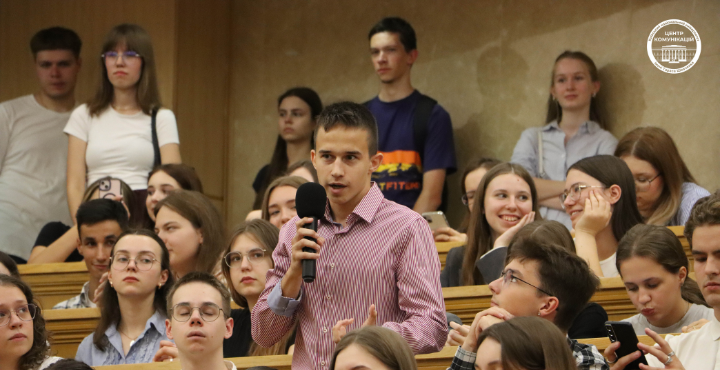
Roman Sharov, a 2nd year student of the Institute of International Relations (International Law study programme), studied French at school, is fluent in the language and admits that he is in love with France. His question concerned the benefits that Ukraine can bring to the life of the European Union. In essence, Roman was checking his own thoughts against the opinion of an authoritative lecturer:
‘I believe that Ukraine is important for the European Union because of its geopolitical position. Ukraine is a major agricultural producer and can create conditions for healthy competition in this market. And finally, Ukraine's military experience gained in modern high-tech warfare can be very useful to a united Europe.’
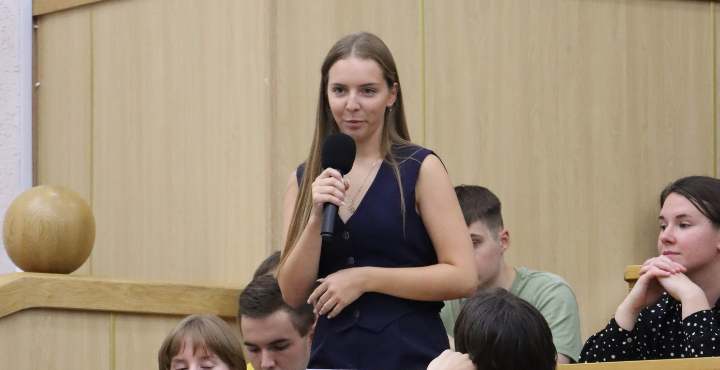
Sophia Oliynyk, a 2nd year student of the Institute of International Relations (International Relations study programme), started learning French outside of school at the age of 10, as she has always been interested in the French art of diplomacy and social system.
‘Having visited the National Assembly last winter and talked to both French MPs and young people, I was even more impressed by the extent to which French youth want to be involved in politics and how strong their interest in the French government is. After thanking the Ambassador for his lecture, I was curious to ask him in his native language, based on the French experience, how Ukrainian youth, especially students, can get involved and accelerate the process of Ukraine's European integration. Ukrainian society strives for integration into the EU not only politically, but also socially, including the establishment of close ties with French society.’
All the students' questions during the discussion contained one extremely important aspect: Ukraine is grateful to the EU countries for their assistance, but at the same time, it is proud to be an equal partner. In fact, the EU slogan declares unity in diversity.
KNU Communications Centre